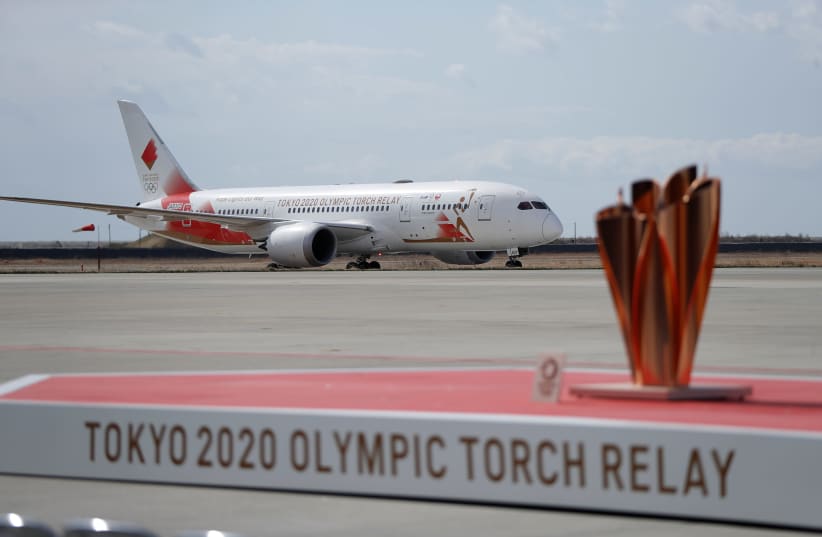The flame arrived at Japan Air Self-Defence Force's Matsushima base and will tour the Tohoku region hit by the tsunami and earthquake, in what the organizers call a "recovery flame" tour until the official kick-off ceremony in Fukushima on March 26.
Organizers have repeatedly said the Games, set to run from July 24 to Aug. 9, will go ahead, but as the rapid spread of the virus brings the sports world to a virtual standstill, fears are growing that the Olympics may be postponed or canceled.
The respiratory disease, which emerged in China late last year, has killed more than 10,000 people worldwide.
Japan is grappling with pressure to avoid a health crisis among 600,000 expected overseas spectators and athletes at an event that could see $3 billion in sponsorships and at least $12 billion spent on preparations evaporate.
The plane with the torch arrived nearly empty after the Tokyo 2020 organizing committee decided not to send a high-level delegation that was originally to have included its chief, Yoshiro Mori, and Olympics minister Seiko Hashimoto.
The arrival ceremony at the base is scheduled to start later on Friday morning.
Organizers have urged the public not to crowd the relay route, canceled many events along the way and have restricted public access to others. Runners and staff will have their temperature and health monitored, the organizers said.
The torch relay in Greece was canceled to avoid drawing crowds.
Some athletes, including reigning Olympic pole vault champion Katerina Stefanidi, said the International Olympic Committee's decision to go ahead was putting their health at risk when entire countries have shut down to curb the virus.
The relay is due to pass many of Japan's most famous landmarks over a 121-day journey, including Mount Fuji, Hiroshima's Peace Memorial Park and Kumamoto Castle.
